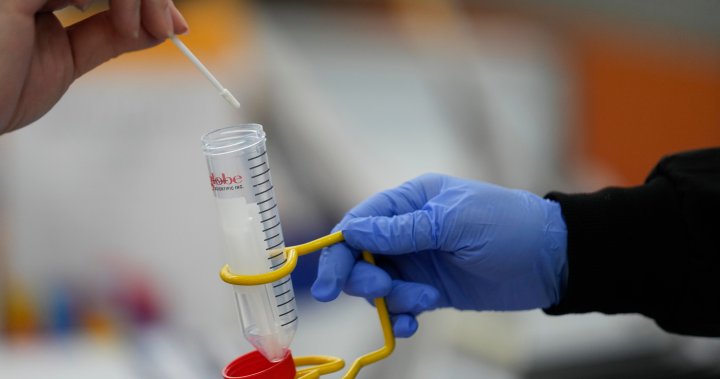Federal scientists from Health Canada and the Public Health Agency of Canada will closely monitor global research to determine the effectiveness of updated COVID-19 vaccines against the Omicron variant. The first known case of the Omicron variant BA.2.86 was detected in British Columbia, making Canada the seventh country to report its presence. Health Canada is currently reviewing applications for Moderna and Pfizer-BioNTech’s new mRNA vaccines developed against the dominant XBB.1.5 variant.
There are only 13 sequences of the highly mutated variant BA.2.86 available for analysis in six other countries, including Denmark, the United States, Portugal, South Africa, Israel, and the United Kingdom. Scientists are investigating whether the BA.2.86 variant changes disease severity, transmission, or affects diagnostic tests, vaccines, or treatments for COVID-19. Understanding the prevalence and impact of this new variant in Canada will become clearer as more laboratory and clinical data is reported.
While cases involving the XBB.1.5 variant remain at a low to moderate level in all reporting provinces and territories, outbreaks were recently announced in a hospital in Windsor, Ontario, and Montague, Prince Edward Island. The BA.2.86 variant was detected in a British Columbia resident who had not recently traveled outside the country, according to provincial authorities. Health officials, including Provincial Health Officer Dr. Bonnie Henry and Health Minister Adrian Dix, have stated that there is no evidence of increased illness severity with this variant, and the infected individual was not hospitalized.
As of mid-June, 80.5% of Canadians have received their primary series of COVID-19 vaccines, with the highest uptake in Newfoundland and Labrador at nearly 92% and the lowest in the Northwest Territories at 75.5%, followed by Alberta at 76%. Immunologist Dawn Bowdish from McMaster University urges vulnerable populations, including the elderly, to remain cautious as the mutating virus poses risks for infection. However, only about 21% of Canadians aged 80 and over have received boosters or completed their vaccination series in the last six months.
The National Advisory Committee on Immunization (NACI) recommends Canadians receive a booster in the fall if it has been at least six months since their last dose or COVID-19 infection. Bowdish suggests that individuals starting chemotherapy or undergoing major surgery may consider getting a booster before the reformulated vaccines are available, but for the general population, it is best to wait.
During the respiratory season in the Southern Hemisphere, which typically occurs from April to September, many countries faced a triple threat of influenza, respiratory syncytial virus (RSV), and COVID-19, resulting in strained healthcare systems. Bowdish hopes Canadians will not hesitate to get a booster in the fall when they can also receive the influenza vaccine. An RSV vaccine for individuals over 60 may also become available, as Health Canada recently approved a vaccine for this age group, but its inclusion in vaccination programs will depend on provincial and territorial decisions.
Virologist Eric Arts from Western University emphasizes the importance of getting vaccinated in the fall, especially for those approaching the one-year mark since their last booster. Although the updated vaccines’ formulas will have minor changes, they are expected to provide better protection against circulating Omicron variants. It is hoped that the bureaucracy will fast-track the distribution of these vaccines.
Denial of responsibility! VigourTimes is an automatic aggregator of Global media. In each content, the hyperlink to the primary source is specified. All trademarks belong to their rightful owners, and all materials to their authors. For any complaint, please reach us at – [email protected]. We will take necessary action within 24 hours.


